NB! The list of teachers is subject to change and will be updated as new information becomes available. Latest update: 19 October 2020.
Here are the confirmed teachers of TaRC’s Master Class 2020, Health and Media, to be held online 2 November–31 December 2020. They will be supported by members of TaRC.
Julie Chen (Chen Yu-Wen)
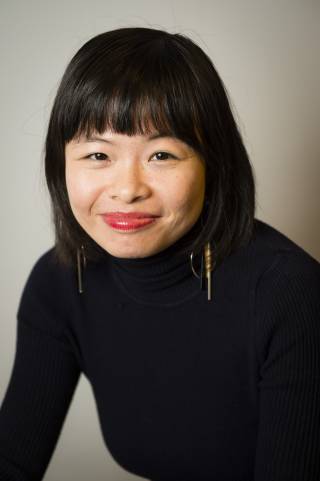
Julie (Yu-Wen) Chen is Professor of Chinese Studies at the Department of Cultures at the University of Helsinki. She is concurrently Hosting Professor (Hosťujúci profesor) at the Department of Asian Studies at Palacky University in the Czech Republic. Dr. Chen is the academic liaison for the University of Helsinki at the Nordic NIAS Council based in Denmark as well as the Nordic Center in Fudan University, China. In Helsinki, she teaches Chinese foreign relations, governance in China, East Asian economy and consumption, as well as Taiwan’s society and culture. Twitter: @julieyuwenchen.
Chen Kan

Kan Chen is a Jungian Analyst (IAAP) and an Associate Professor in the Department of Psychology at Fudan University in Shanghai, China. Her research interests are in art therapy (sand play, stories, and painting), clinical psychology, and parenting.
Dale Hudson

Dale Hudson is an associate professor of Film and New Media at New York University Abu Dhabi and digital curator for the Finger Lakes Environmental Film Festival (FLEFF). He is author of Vampires, Race, and Transnational Hollywoods (2017) and co-author of Thinking through Digital Media: Transnational Environments and Locative Places (2015). His essays appear in Afterimage, American Quarterly, Cinema Journal, Jadaliyya, Screen, Studies in Documentary Film, Studies in South Asian Film and Media, and elsewhere.
Sari Kivistö

Sari Kivistö is a Professor of Comparative Literature at Tampere University. Her research interests include, for example, epistemic vices, suffering and antitheodicy in literature, and Neo-Latin literature. Kivistö’s publications include Lucubrationes Neolatinae. Readings of Neo-Latin Dissertations and Satires (2019), Kantian Antitheodicy. Philosophical and Literary Varieties (with S. Pihlström, 2016), Death in Literature (ed. with O. Hakola, 2014), The Vices of Learning. Morality and Knowledge at Early Modern Universities (2014), and Medical Analogy in Latin Satire (2009). Kivistö is an invited member of the Finnish Academy of Science and Letters and the Finnish Society of Sciences and Letters.
Eeva Kuikka
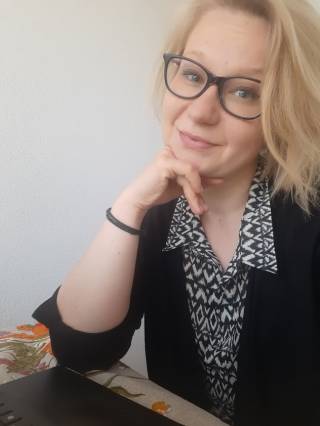
Eeva Kuikka, MA, is a Ph.D. candidate in Russian language and cultural studies at Tampere University. Her doctoral research deals with human-animal relations in the literature of indigenous peoples of the Russian Arctic region with an approach that combines human-animal studies, ecocriticism, posthumanism, and postcolonial theory. In addition to these fields of study, Kuikka’s research interests lie in gender studies and LGBTIQ+ research in the context of Russian culture.
Derek Lam

Derek Lam, Ph.D., teaches film as a lecturer at the University of Hong Kong. He has worked for the Hong Kong International Film Festival, Macau’s Cinemateca Paixão, and the New York Film Festival. He studied film directing at Columbia University and received his Ph.D. in Comparative Literature from the University of Hong Kong.
Tatu Laukkanen
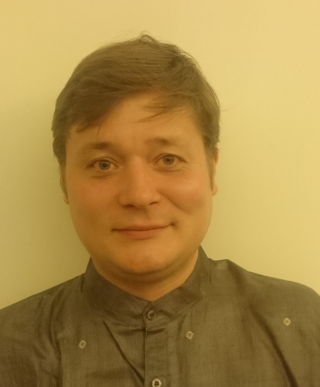
Tatu Laukkanen received his Ph.D. in 2017 from the Department of Comparative Literature at the University of Hong Kong. A film scholar and industry professional, he is affiliated with the Department of Communications at Tampere University. He is a specialist on the BRICS as a cultural bloc and a member of TaRC (Tampere Research Centre for Russian and Chinese Media). His recent or forthcoming publications are, “Neoliberal Capitalism and BRICS on Screen” in BRICS, Framing a New Global Communication Order? Routledge (with Iiris Ruoho, forthcoming, 2021) and the article “Shanghai Gangster Films and The Politics of Change” (2020).
Olga Logunova
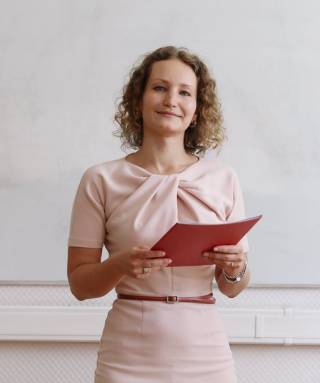
Olga Logunova is an Associate Professor in the Department of Sociology at the Higher School of Economics, National Research University, Russia. She lectures and holds seminars on the following courses: Contemporary Means of Communication and Culture of Consumption; Research Methods for Media Texts; New Media and Digital Culture; New Trends in Media Studies. She has taken part in several thematic scientific conferences (ICA, ECREA, CEECOM, and others). A member of the research team in the Russian Science Foundation grant (RSF No17-78-20164) “Sociotechnical barriers of the implementation and use of information technologies in Russia (2017-2020), she has had 46 publications in total, including publications in peer-reviewed international journals.
Sergei Mokhov

Sergei Mokhov defended his Ph.D. thesis that focused on the funeral industry in contemporary Russia at the Higher School of Economics (2019). In 2018-2019, he was an Oxford Russia Fellow with a project on the hospice movement in Russia. Since 2020, he is a research fellow at the Center for Medical Anthropology (Russian Academy of Science) and a Postdoctoral Research Fellow at Liverpool John Moores University. His current project focuses on Soviet oncology and the care for dying people in the late USSR. Sergei is the author of The Birth and Death of the Funeral Industry: From Medieval Graveyards to Digital Immortality (Commonplace, 2018; Alexander Piatigorsky Literary Prize) and The Brief History of Death (Individuum, 2020).
Svetlana Pasti
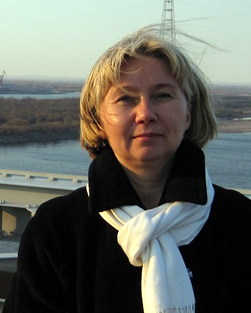
Svetlana Pasti is an Adjunct Professor at Faculty of Information Technology and Communication Sciences (ITC) at Tampere University, Finland. Her research interests are in journalism studies and comparative research in the BRICS countries. She is the author of two monographs, A Russian Journalist in Context of Change: Media of St Petersburg (2004) and The Changing Profession of a Journalist in Russia (2007), as well as over 30 peer-reviewed chapters and journal articles. She is also the author and co-editor of The BRICS journalist: Profession and practice in the age of digital media (African Journalism Studies, 2015), and Contemporary BRICS Journalism (Routledge, 2018), and co-author of several chapters in the forthcoming books: D.K. Thussu and K. Nordenstreng (eds.) BRICS Framing a New Global Communication Order? (Routledge, 2021) and C. Mellado (ed.) Beyond Journalistic Norms: Role Performance and News in Comparative Perspective. (Routledge, 2021).
Saara Ratilainen
Saara Ratilainen (Ph.D.) is a Senior Lecturer in Russian Language and Culture at Tampere University, and an expert in Russian media and digital culture. She has worked extensively on Russian and post-Soviet gender and feminist studies and published in Feminist Media Studies (2014) and co-edited the special issue ‘Women and Tech in the Post-Socialist Context: Intelligence, Creativity, Transgression’ (Ratilainen et al. 2018). She co-edited a special issue for Cultural Studies ‘Culture in Putin’s Russia: Institutions, Industries, Policies’ (Turoma et al. 2018).
Iiris Ruoho
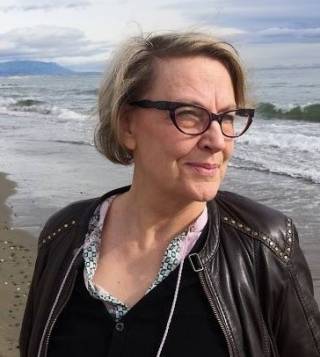
Iiris Ruoho is a Senior Lecturer and Adjunct Professor of Journalism and Mass Communication, and Head of the Communication Sciences Unit at Tampere University, Finland. She works in the field of journalism and media studies and is well known for her feminist media and television drama studies in Finland. Nowadays her study interests are in mediated journalistic leadership, gender, and digitalization of media and society in Finland, China, and Russia. Her latest (2014-) project is about Twitter politics – democracy, representation, and equality in the new online public spheres of politics. Her list of publications includes over 100 scientific and other research-based publications and papers. Her latest publications deal with journalism and gender (2018), and the political power of Twitter (2019). In her forthcoming article with Tatu Laukkanen, she discusses neoliberal capitalism and BRICS on the screen (forthcoming in 2021). She has been a visiting scholar at the universities of Texas at Austin (1995, 1997), Oregon at Eugene (2006), and Fudan University in Shanghai (2011). During her academic career, she has had several positions of trust, for example, the current board member of the Nordic Institute of Asian Studies. She has been a key organizer of the Sino-Nordic conference on women and leadership “Potentiality, Ability and Authority”, May 23–25, 2016 (Tampere, Finland), and a vice-chair in the Sino-Nordic conference “Digital Culture and Society”, October 19–20, 2017 (Shanghai, China).
Sinikka Torkkola
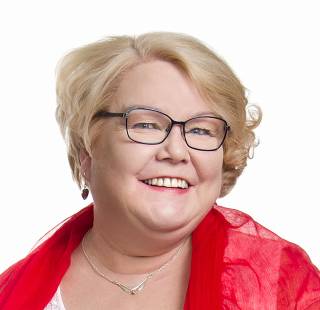
Sinikka Torkkola is a Senior Researcher Fellow in the Faculty of Information Technology and Communication at Tampere University, Finland. She is also a member of the International Council of International Association of Media and Communication Research, IAMCR, and vice-chair of the Health Communication Working Group of IAMCR. Her research interests include health communication, the gender of journalism, and political journalism. Currently, she is involved in two research projects. In the research project, Negative Expertise and the Erosion of the Finnish Information Society at the Turn of 2020, Negate, she investigates the digitalization of health care and the influence of social media on interactions between health experts and patients. The project is funded by the Academy of Finland. In another ongoing project that aims to recognize and prevent corruption in Finnish society from the viewpoint of group dynamics, she focuses on institutional corruption and analyses a case study of local political decision-making. The project is funded by the Kone Foundation.
Sanna Turoma
Sanna Turoma is a Professor of Russian Language and Cultural Studies at Tampere University, Finland. Educated at the University of Helsinki and Columbia University (USA), she specializes in culture, literature, and the humanities in Russian area studies. She is the author of Brodsky Abroad: Empire, Tourism, Nostalgia (University of Wisconsin Press, 2010) forthcoming as a Russian translation in 2020. She has also co-edited Empire De/Centered: New Spatial Histories of Russia and the Soviet Union (Ashgate, 2013) with M. Waldstein; Cultural Forms of Protest in Russia with B. Beumers, A. Etkind, and O. Gurova (Routledge, 2017); Religion, Expression, and Patriotism in Russia with K. Aitamurto and S. Vladiv-Glover (ibidem, 2019), and Russia as Civilization: Ideological Discourses in Politics, Media, and Academia with K. J. Mjør (Routledge, 2020). She is also the co-editor and co-author of the first Finnish-language textbook on the history of Russian literature, Venäläisen kirjallisuuden historia (Gaudeamus Helsinki UP, 2011, 2015) with K. Ekonen.
Patricia R. Zimmermann

Patricia R. Zimmermann is a professor of Screen Studies at Ithaca College and co-director of the Finger Lakes Environmental Film Festival (FLEFF). Her most recent books include Thinking Through Digital Media: Transnational Environments and Locative Places (2015), Open Spaces: Openings, Closings, and Thresholds of Independent Public Media (2016), The Flaherty: Decades in the Cause of Independent Film (2017), Open Space New Media Documentary: A Toolkit for Theory and Practice (2018), and Documentary Across Platforms: Reverse Engineering Media, Place, and Politics (2019).
